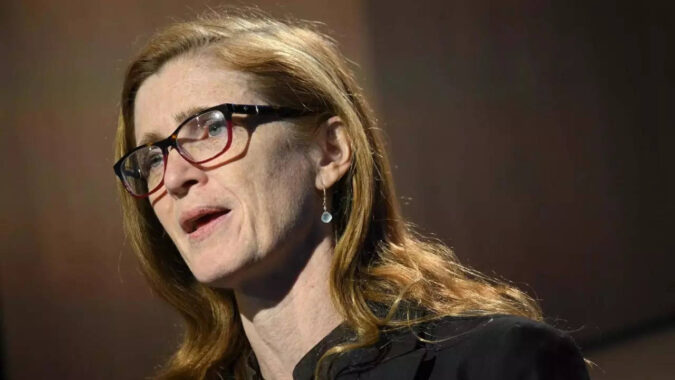WASHINGTON: India has grown and thrived in so many domains with all hands-on deck, a top Biden administration official said and applauded New Delhi’s leadership role in proposing the Coalition for Disaster Resilient Infrastructure (CDRI).
Hailing India for its sustained commitment to disaster resilience around the world, US Agency for International Development (USAID) Administrator Samantha Power said it was the country’s leadership that helped create CDRI out of a fierce belief that disaster resilience efforts will be most successful when driven not just by governments but by everyone.
“As we all know, it was the government of India’s leadership that helped create this Coalition – out of a fierce belief that disaster resilience efforts will be most successful when driven not just by governments, but by everyone,” Power said addressing the Coalition for Disaster Resilient Infrastructure’s Governing Council Meeting.
With the climate crisis accelerating — as floodwaters still are submerging parts of Pakistan, drought still ravaging East Africa, snowstorms tearing through the American West and India itself bracing for devastating heat waves — it becomes clearer and clearer that no government alone can stem the tide of impending disaster, she said.
“And we need to build a movement where disaster resilience is driven by everyone – all hands-on deck,” she said.
“Your new strategy, which will be launched this year, I think offers a roadmap to realise this vision. It calls for Coalition members to find and engage partners in government, multilateral organisations, private companies and communities themselves – because that is the way we will meet the needs of the most climate imperiled communities,” Power said, adding that in the past year, this Coalition has collaborated to make significant progress.
USAID, she noted, is going to continue to engage more partners to make the fight to build community resilience a global fight.
USAID can work to bring in more US federal agencies to donate their experience in emergency management or engineering to the most climate-imperiled communities, she added.
“And I know when I was in India, this is something that our Indian counterparts are very interested in, working with other US agencies,” Power said.
Hailing India for its sustained commitment to disaster resilience around the world, US Agency for International Development (USAID) Administrator Samantha Power said it was the country’s leadership that helped create CDRI out of a fierce belief that disaster resilience efforts will be most successful when driven not just by governments but by everyone.
“As we all know, it was the government of India’s leadership that helped create this Coalition – out of a fierce belief that disaster resilience efforts will be most successful when driven not just by governments, but by everyone,” Power said addressing the Coalition for Disaster Resilient Infrastructure’s Governing Council Meeting.
With the climate crisis accelerating — as floodwaters still are submerging parts of Pakistan, drought still ravaging East Africa, snowstorms tearing through the American West and India itself bracing for devastating heat waves — it becomes clearer and clearer that no government alone can stem the tide of impending disaster, she said.
“And we need to build a movement where disaster resilience is driven by everyone – all hands-on deck,” she said.
“Your new strategy, which will be launched this year, I think offers a roadmap to realise this vision. It calls for Coalition members to find and engage partners in government, multilateral organisations, private companies and communities themselves – because that is the way we will meet the needs of the most climate imperiled communities,” Power said, adding that in the past year, this Coalition has collaborated to make significant progress.
USAID, she noted, is going to continue to engage more partners to make the fight to build community resilience a global fight.
USAID can work to bring in more US federal agencies to donate their experience in emergency management or engineering to the most climate-imperiled communities, she added.
“And I know when I was in India, this is something that our Indian counterparts are very interested in, working with other US agencies,” Power said.
